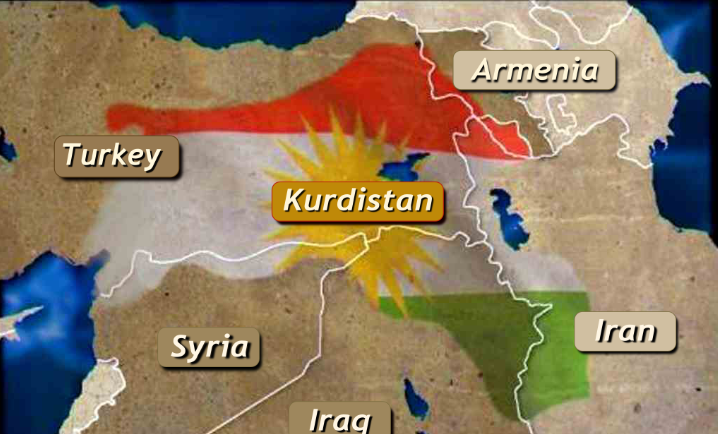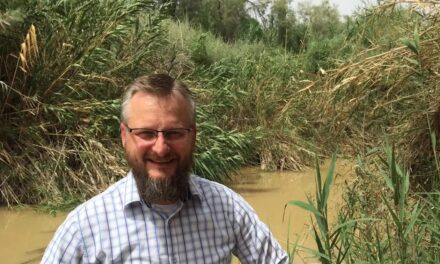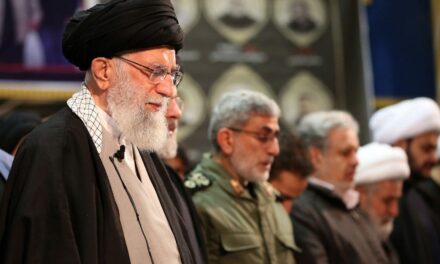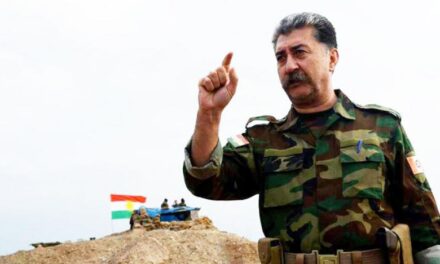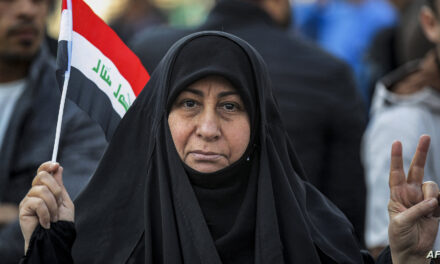By Gedaliah Blum – Heartland Initiative
The same jihadi ideology that’s hell-bent on erasing Israel, the one Jewish state, is also waging a ruthless campaign to crush every other ethnic minority that stands in its path. It’s not just Israel—Kurds, Christians, Yazidis, and others are all fighting for their survival, their right to their ancestral lands, and the freedom to live by their own culture and values. As a Jewish Israeli and a “settler,” I understand this fight for survival because it’s our story too.
The Kurdish people are not strangers to their homeland; they are indigenous to a region that stretches across the mountains of southeastern Turkey, northern Syria, northern Iraq, and western Iran—a land called Kurdistan for generations. They’ve lived there for millennia, long before the modern borders that have sliced their homeland into separate countries. Just as we Jews have an unbreakable connection to the land of Israel, the Kurds are inseparably tied to the mountains and valleys of Kurdistan.
Numbering approximately 35 million people, the Kurds make up one of the world’s largest stateless ethnic groups. They have their own language, Kurdish, which has several dialects, each uniquely adapted to the lands they inhabit. Kurdish is not a mere dialect or variant of the languages around it; it’s a language with deep roots, belonging to the Iranian branch of the Indo-European language family, and stands as a testament to a distinct identity forged over thousands of years.
Kurdish culture is rich and resilient, marked by unique traditions and holidays that tie them closely to their homeland and to each other. One of their most significant celebrations is Newroz, the Kurdish New Year, observed on March 21. Newroz isn’t just a holiday; it’s a symbol of Kurdish resilience and a celebration of renewal, reflecting the spirit of a people who have survived countless attempts to erase their identity. It’s a day filled with traditional music, dancing, and bonfires, linking the Kurdish people to their land and history, much like our Jewish festivals are bound to the agricultural cycles and seasons of Israel.
Despite all these markers of a strong and enduring nation, the Kurds have faced brutal persecution for generations. Just as the Jewish people were scattered, persecuted, and often left defenseless, so too have the Kurds been driven from their homes and stripped of their rights. In the 20th century alone, the Kurds endured mass killings, chemical attacks, and forced displacement, especially under Saddam Hussein’s brutal Anfal campaign in Iraq, which killed tens of thousands of Kurds. Turkey, Iran, Syria, and Iraq have all enacted policies aimed at erasing Kurdish language, culture, and identity.
Adding to this historical injustice is a broken promise—one that remains unfulfilled to this day. In 1920, the Treaty of Sèvres laid out a vision for a new Middle East after the collapse of the Ottoman Empire, and it included provisions for an autonomous Kurdish state. The Kurds were promised a homeland, a place where they could govern themselves and preserve their unique culture and way of life. But this promise was abandoned in 1923, when the Treaty of Lausanne disregarded Kurdish aspirations for self-determination and left them divided among hostile states. The world reneged on its promise to the Kurdish people, leaving them vulnerable to the ongoing persecution they still face today.
Yet, despite every attempt to crush them, the Kurds have held onto their culture, their language, and their way of life. They’ve stood against ISIS and other extremist forces, protecting their communities and, in many ways, defending the values of freedom and dignity for the entire region. While others around them have embraced extremism, the Kurds have chosen a different path. They’ve built schools, hospitals, and local governments in areas they control, and have even welcomed diversity in a region where such tolerance is rare.
As a Jew, I understand the weight of being indigenous to a land, of holding onto our heritage despite endless persecution. For centuries, the Jewish people were scattered, stripped of their homeland, persecuted simply for being who we are. But we never forgot our land, and we never abandoned our dream of returning. Today, we live in Israel, not because someone handed it to us, but because our people held onto this dream for 2,000 years, bound by a connection no conqueror could break. The Kurds have this same bond to their homeland—a connection forged through sacrifice, heritage, and history.
I often hear people question why I support Kurdish self-determination while I reject the establishment of a Palestinian state. But this isn’t hypocrisy; it’s clarity. The Kurds are fighting for their lives, for a homeland, and for the values of life, resilience, and peace. They do not glorify violence or terror; they’re not trying to destroy others. They seek to build on their land, a land they’ve lived on since ancient times. In contrast, too many leaders among the Palestinians have chosen the path of hatred, violence, and the celebration of death over life. Self-determination isn’t a blank check for destruction; it belongs to those who honor life, who build rather than destroy, and who contribute to stability and peace.
It is a complete failure of justice that the international community has denied the Kurdish people their right to self-determination. While the world watches silently, Turkey and Iran continue their campaigns of violence against the Kurds, attacking villages, killing civilians, and tearing families apart. Just as the Jewish people have faced enemies hell-bent on erasing us, so too do the Kurds stand against forces determined to wipe them out. But these regimes fear the Kurds not because they’re a military threat—they fear them because the Kurds represent something powerful: the will to live freely, to govern themselves, and to defy oppression.
If you support freedom, justice, and the right to live in peace, then this is your fight too. I urge you to learn more about the Kurdish people—their history, their culture, and their long struggle for survival. Ignorance has allowed the world to look away from this suffering for too long. If we are to stop this brutality, we must educate ourselves, raise our voices, and demand that Turkey, Iran, and other forces cease their campaigns against the Kurds.
The Kurds deserve the right to live freely, to govern themselves, and to cultivate their homeland in peace. They are not just fighting for their survival—they are fighting for values that resonate with all free people. As Jews, as people who know the pain of exile and the struggle for survival, we have a duty to stand with the Kurds. The time for action is now.
Israel and every nation that values freedom must stand with the Kurdish people. We, who know what it means to fight for our homeland, must raise our voices. It’s time to end the silence, to demand justice, and to affirm that the Kurds have a rightful place among the nations. The world needs to know that the Kurds, an ancient people bound to their land, deserve their freedom and the right to live without fear. This is a fight for their survival—and for the future of justice, dignity, and peace in the Middle East.

